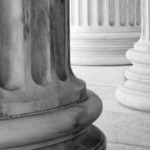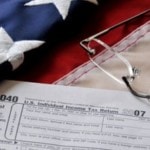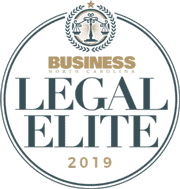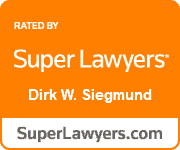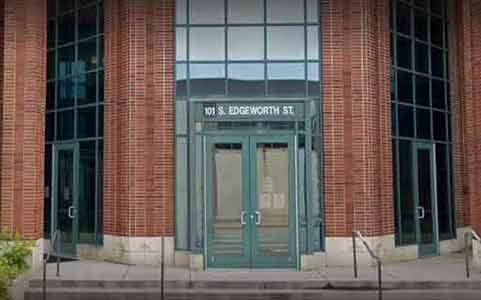Bankruptcy Basics

No one likes to feel like, no matter how hard they try, they can't break free from the chains that bind them. However, debt can make you feel this way. Fortunately, many different debt relief options available to the Piedmont Triad area and beyond, including filing bankruptcy, can help bring you a sense of hope amidst the darkness.
Our team of experienced bankruptcy attorneys at Ivey, McClellan, Gatton & Siegmund has helped many of your fellow Greensboro, NC residents address their debt woes by filing bankruptcy. Let's explore some of the bankruptcy basics to see if this debt relief option may be ideal for you to pursue.
When Might You Want To File For Bankruptcy?
Being straddled with debt can feel overwhelming. It may make you feel like you're suffocating or drowning. Bankruptcy can provide debt relief to individuals, married couples, and businesses here in Greensboro, NC.
A North Carolina bankruptcy may be an option worth serious consideration under the following circumstances:
- The prospect of repaying your outstanding debts within the next few years seems unlikely.
- Your debt has affected your ability to make any financially-oriented choices (like securing a car loan, job, or housing).
- Your outstanding balances exceed your household income by 40% or more. Don't include your home loan in this debt percentage determination.
Like any form of debt relief, there are pros and cons associated with bankruptcy, including it adversely impacting your credit score for some time after your Greensboro case's discharge.
What Are the Different Types of Bankruptcy?
Title 11 of the United States Code details bankruptcy laws. Various chapters comprise that code's subsections. They outline the bankruptcy options individual, married, or corporate debtors have.
One of the most basic steps in bankruptcy is determining what type a debtor might qualify to file. Options include:
Chapter 7
The majority of individual or married debtors file Chapter 7 bankruptcy. Corporations can pursue this bankruptcy option as well. They typically do so to free themselves from the burden of unsecured debts, such as medical bills and credit card debt.
What Does a Liquidation of Assets Entail?
Chapter 7 bankruptcy involves selling the debtor's non-exempt assets and distributing any proceeds from that sale to creditors.
Some examples of exempted assets in North Carolina include:
- Up to $35,000 in personal real estate equity
- Income or wages
- Up to a $3,500 ownership stake in a single vehicle
- Prescription health aids
- Up to $2,000 in job-related study materials or tools
- Child support or alimony
- Public benefits, like workers' compensation, unemployment, or disability payments
- Up to $5,000 in home furnishings, clothing, and other household goods
- Most pensions or retirement plans
- Personal injury compensation or insurance benefits
These are just some examples of exempt assets that debtors don't generally have to fear losing during a bankruptcy liquidation. Some limitations apply to each of them.
A bankruptcy attorney in our Greensboro, NC office of Ivey, McClellan, Gatton & Siegmund can go over when delving a bit deeper than the bankruptcy basics during your initial consultation.
Many debtors have little to no non-exempt assets at the time of their bankruptcy filing, so most Chapter 7 cases end up being no asset ones where no liquidation and distributions occur. Instead, debt is often discharged as part of the bankruptcy process, leaving consumers with a clean financial slate.
Factors That May Disqualify a Debtor From Pursuing Chapter 7 Bankruptcy
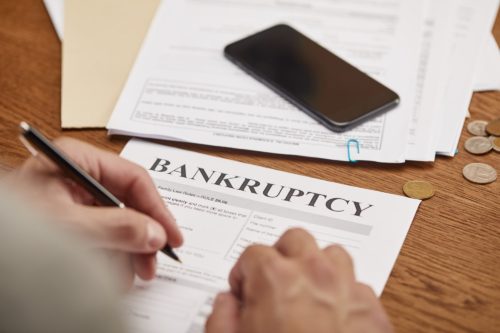
Any debtor that has previously had their debts discharged by filing Chapter 7 must wait eight years before refiling for it.
Additionally, debtors who the Court believes defrauded them when listing their assets and liabilities and, more specifically, transferred them to someone before filing risk dismissal of their case without any relief.
The third disqualifier for Chapter 7 bankruptcy is failing the means test.
Understanding What a Means Test Is
Individual or married debtors must pass a means test to be eligible to file for Chapter 7 bankruptcy. This test assesses how your household income compares to the state median for a family of a similar size.
Provided your number falls below that state threshold; you would be eligible to proceed in filing Chapter 7 bankruptcy. However, if your household income exceeds that amount, the Court would convert your case to a Chapter 13 (repayment) type of bankruptcy.
Chapter 11
While filing Chapter 7 bankruptcy is an option for businesses, many corporations eschew this option as it would render their company out of operation.
Business or corporate debtors instead pursue a Chapter 11 bankruptcy. This option allows companies to remain in operation while devising a reorganization plan for repaying creditors for their debts.
Corporate debtors generally submit a disclosure statement outlining how their business functions and additional details about their financial state as part of the Chapter 11 bankruptcy filing process. Doing so allows creditors to determine whether reorganization is appropriate for ensuring a debtor ultimately repays what they owe.
Chapter 13
Individuals and married couples who don't qualify to file for Chapter 7, one of the most straightforward, basic bankruptcy options, or don't feel like this type is right for them, can opt for Chapter 13 instead.
Many debtors choose to file Chapter 13 bankruptcy from the start because they wish to hold on to certain assets, like their home, instead of losing it in a foreclosure.
Eligibility Requirements To File Chapter 13 Bankruptcy
It's important to note that not everyone wishing to pursue Chapter 13 bankruptcy readily qualifies to file for it.
Debtors must not have filed for Chapter 13 bankruptcy within the past two years. They must not have had a Chapter 7 discharge within four years either. Additionally, consumers wishing to file Chapter 13 must have regular, verifiable income and be current on their taxes.
How Chapter 13 Bankruptcy Repayment Plans Work
This debt relief option allows debtors to repay creditors per an agreed-to repayment across a three-to-five-year period as signed off by the trustee presiding over the Greensboro, NC bankruptcy case. Most repayment plans must clearly spell out how a debtor will pay for non-dischargeable and non-exempt property using the income they have for a bankruptcy trustee to approve a Chapter 13 repayment plan.
When Should You Consider Speaking With a Greensboro Bankruptcy Attorney
Are you struggling with debt and looking to get creditors' increasingly aggressive calls and letters to stop? Are you looking for a fresh start that allows you to make better financial choices so you never find yourself in the same predicament as you are now, again? If so, speaking with a Greensboro, NC, bankruptcy attorney in our office might be the ideal next step to gaining more control over your life and business again.
Our Ivey, McClellan, Gatton & Siegmund bankruptcy lawyers have more than seven decades of experience serving consumers and businesses like yours in Greensboro, NC. We have a command of more than the North Carolina bankruptcy basics and are eager to share that insight with you.
Don't spend one more day dealing with pesky creditors. Schedule your initial consultation with one of our consumer or business bankruptcy attorneys today. Scheduling an appointment with our Greensboro, NC lawyers at Ivey, McClellan, Gatton & Siegmund is the first step you need to take to secure financial relief so you can destress.
Schedule An Appointment
Office Locations
Greensboro
305 Blandwood Ave
Greensboro, NC 27401
Phone: (336) 274-4658
Fax: (336) 274-4540
Eden
551 Monroe Street
Eden, NC 27288
Phone: (336) 623-4600


